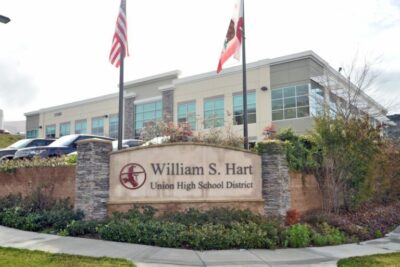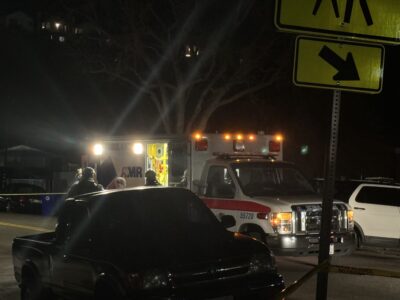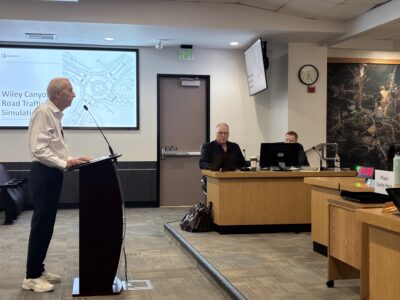Editor’s note: For this story, The Signal asked local legislative representatives to discuss, in their own words during a brief interview, their positions on sanctuary laws in Los Angeles and California that protect illegal immigrants from detention by federal authorities. For this report, we did not accept pre-written statements — we asked the legislators for a 10-minute phone interview, at any time over the course of a two-week period. All four legislators who represent the Santa Clarita Valley in Congress and the state Legislature were offered the same opportunity to speak. Two agreed to be interviewed, and two refused.
Both Republican legislators whose districts include constituents in the Santa Clarita Valley say they oppose the so-called “sanctuary” laws that shield illegal immigrants from federal authorities in states including Colorado, New York and California, and more specifically in cities including Chicago, Seattle and Los Angeles.
In California, for example, Senate Bill 54, also known as the California Values Act, restricts resource use and information sharing with United States Immigration and Customs Enforcement, except in limited cases. The bill became state law in 2018.
Sen. Suzette Martinez Valladares, R-Acton, represents California’s 23rd State Senate District, which includes most of the Santa Clarita Valley, communities in the Antelope Valley and a portion of the Victor Valley. In a phone interview with The Signal, she spoke about how she opposed sanctuary laws.
“I was elected to represent our community on supporting law enforcement and holding criminals accountable,” Valladares said. “Unfortunately, California sanctuary laws don’t allow us to do that.”
She added that SB 554, which she co-authored, would’ve required local and state law enforcement to work with federal law enforcement in the deportation of illegal alien criminals, and specifically those convicted of serious violent crimes.
However, Valladares said, that bill was rejected.
“I think it was even called ‘anti immigrants,’ which is more than frustrating because all that bill (SB 54) does is actually force federal enforcement into our communities versus this taking place in jails, prisons and courthouses, where it should be.”
The senator said that while there’s state-level sanctuary law, some cities have adopted their own sanctuary policies, and those, she said, “even further prohibit local law enforcement from working or collaborating with federal law enforcement.”
She shared her frustration with the immigration situation in America and how immigration reform is long overdue.
“The reality is that there’s an underground economy because immigration has not been modernized,” she said.
At the end of June, Valladares and five other California Republican legislators authored a letter to U.S. President Donald Trump, urging him to focus immigration enforcement on violent criminals rather than on broad ICE raids that they believe is harming local communities and businesses. In the letter, the legislators additionally called for immigration reform that balances law and compassion, including a pathway to legal status for non-criminal undocumented immigrants and expanded access to legal guest worker programs to support the state’s economy.
Assemblyman Tom Lackey, R-Palmdale, represents California’s 34th State Assembly District, which includes eastern portions of the Santa Clarita Valley, the Antelope Valley, Victor Valley, the San Bernardino Mountains and the High Desert. Lackey, a retired California Highway Patrol sergeant, criticized sanctuary laws for creating a barrier between local and federal law enforcement.
“Who thinks that’s healthy?” he said in a recent telephone interview. “It causes chaos. It’s caused all sorts of problems because what happened when we finally have a government leader who feels that immigration law deserves to be enforced is that they (federal authorities) no longer can cooperate with local law enforcement. They have to go into neighborhoods and businesses, and of course, that creates chaos and objection and fear, and those are all antithetical to public safety. So, we brought this on ourselves in California and even in local communities.”
Lackey added that before sanctuary laws were in place, local law enforcement would notify immigration authorities after taking someone into custody, eliminating the need for ICE to enter neighborhoods or businesses. He said that sanctuary laws changed that process, and in his view, the state chose to protect individuals who are violating public safety laws.
The assemblyman also discussed some of the debates around sanctuary policies, including some concern that without these laws, local police would share individuals’ immigration status with federal authorities — potentially discouraging community members from cooperating with law enforcement out of fear of deportation, which could hinder local crimefighting efforts.
“There’s a misunderstanding of what’s actually being undertaken,” Lackey said. “It’s unfortunate that law-abiding families are feeling fearful. Families who follow the law should not be afraid, but those who break the law — especially those with convictions or have been caught — should expect consequences. That’s how a functioning country works.”
2 legislators decline interview requests
Rep. George Whitesides, D-Agua Dulce, and Assemblywoman Pilar Schiavo, D-Chatsworth, each declined to be interviewed for this story during the two-week window that was provided.
Whitesides represents California’s 27th Congressional District, which includes the Santa Clarita Valley, the Antelope Valley and the northwest San Fernando Valley.
Schiavo represents California’s 40th State Assembly District, which includes the Santa Clarita Valley, Castaic, Val Verde and the northwest San Fernando Valley.







